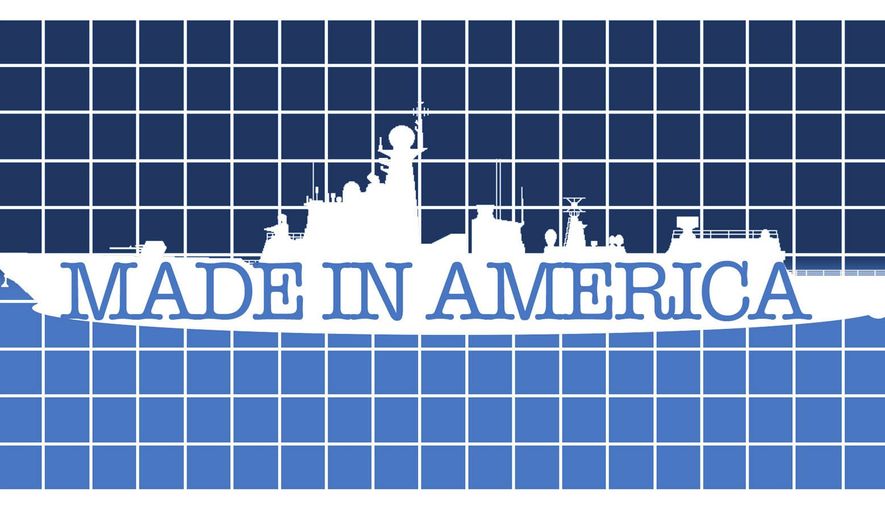OPINION:
In the House Armed Services Committee recently, something very terrible, very damaging and very Washington happened.
During the committee’s consideration of the National Defense Authorization Act – the legislation that specifies what the federal government will spend on defense in the next fiscal year – Rep. John Garamendi, California Democrat, offered an amendment.
His amendment would have narrowed the exemptions to the Buy America laws and rules, which require the Navy to build as many parts of its ships as possible in the United States. So far, so good.
In advocating for his amendment, Mr. Garamendi asked: “Are we capable in the United States to produce the key elements of a Naval ship? Presently the answer is ‘not really.’ But if we adopt this amendment, these key elements will be made in America.”
Unfortunately, the U.S. Navy must have objected to the amendment. One Republican member of the committee, who represents a district near Newport News Shipbuilding in the commonwealth of Virginia – moved immediately to reject the amendment and instead “study” the issue.
The committee, loath to cross the Navy and, as always, looking to avoid conflict, ultimately voted for yet another study about why the Navy won’t build ships using American labor and American parts.
The terrible part of this story is, of course, that Mr. Garamendi’s amendment would have encouraged the reshoring of the supply chains that the military needs. It is a national embarrassment and may soon become a lethal problem that we cannot supply our own military with American-made goods. How will that turn out in the event of a genuine conflict with a superpower competitor over, say, Taiwan?
The damaging part of rejecting the amendment is that Mr. Garamendi is clearly thinking beyond the immediate problem. He wants to nudge the Navy toward an approach that relies on American labor and American-made components. Why should taxpayer money go to make other nations’ industrial complexes and workforces stronger and more prosperous? What sense does that make?
The very Washington part of the kabuki was, of course, that the lawmakers who voted for a study cynically understand that the last thing we need is yet another study urging us to do exactly what the Garamendi amendment would have done: namely, build our industrial and employment base to the point where we can readily supply the needs of our military both in peacetime and during conflicts.
Mr. Garamendi was clear about his sentiments. “Either you want to make it in America … or you don’t. … If you want real national security, you’re going to have to build things here. If you want a real economy, you’re going to have to make things in America.”
This has been said before, but it bears repeating: The last 30 years of our approach to trade, especially concerning our most significant adversary, has been a mistake. It has made others stronger and the United States weaker. Both parties are to blame.
We need to set that unfortunate history aside and get on with the business of addressing the risk posed by supply chains and suppliers that may not always be reliable and are never going to provide prosperity for American workers. The building of ships for the U.S. Navy seems like a good place to start.
• Michael McKenna, a columnist for The Washington Times, is the president of MWR Strategies. He was most recently a deputy assistant to President Trump and deputy director of the Office of Legislative Affairs at the White House.




Please read our comment policy before commenting.